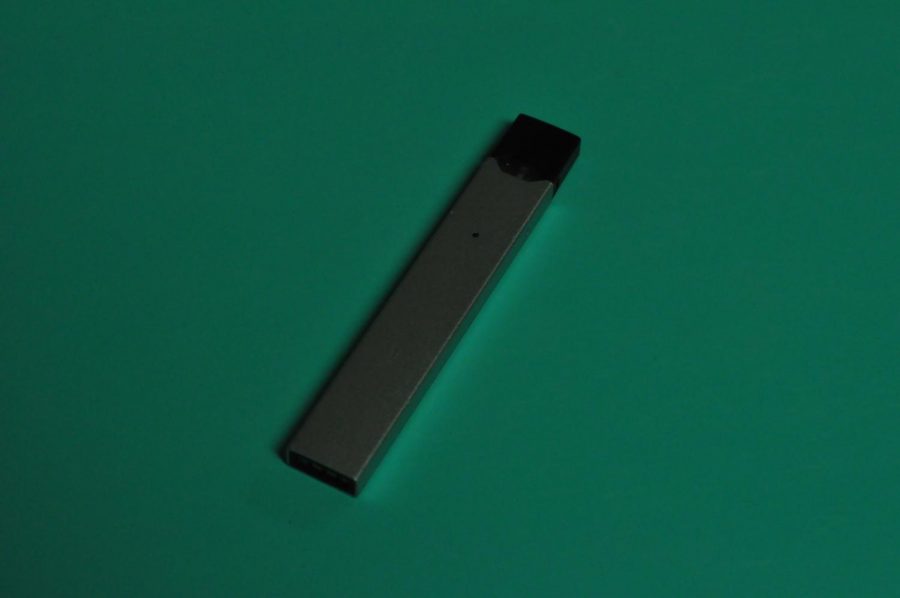Central Faculty and Students React To Trump Ban On Flavored Juul Pods
Flavored Juul Pods will soon be off the shelves of vape stores nationwide.
September 15, 2019
Recently, the Trump Administration announced a ban on selling of several flavored e-cigarettes in order to reduce the number of health-related issues and deaths occurring across the nation.
“We can’t allow people to get sick and we can’t have our kids be so affected,” Donald Trump stated during his address of the health issue.
According to The New York Times, there are now 500 reports vaping-related respiratory illnesses which span across the country. There have also been six deaths which are being linked to vaping.
Juul has denied that it aimed their products toward a younger audience. However, the company is facing trouble after the Food and Drug Administration issued a warning letter to the agency to stop marketing their products as “safe,” for consumers. The ban of fruity flavors was set in place to help limit the interest in vaping in younger users.
Alex M. Azar II, FDA Secretary for Health and Human services, explains that five million minors, mostly in high school, have reported using e-cigarettes before. In an annual survey, about one-quarter of America’s high school students said that they have vaped in the past 30 days, which has gone up 20 percent since last year.
Central Connecticut psychology professor Joanne Diplacido described the product as dangerous, adding in that “nicotine is the most addictive drug.”
During a lecture in Diplacido’s health psychology class, she expanded on the act of vaping.
“There are so many chemicals in e-cigarettes. So many added and a lot of people don’t know what they are vaping,” Diplacido added.
Central students have agreed that banning flavors may help decrease the younger audience appeal, however, their personal decision to quit vaping/nicotine for themselves is mixed.
Sophomore Alvaro Torres is a Juul user himself; he switched to the electronic cigarette to stop or reduce his habit of smoking marijuana. But he also understands the dangers it may hold for younger users.
“I think it’s a good idea to stop younger users because [ vaping illness] is becoming a major issue now with all these things happening to young people,” Torres stated.
“The ban on flavors doesn’t make me want to quit. The things happening to these people is what makes me want to quit,” Torres expressed. “Only reason they’re proposing a ban is because of all these devastating things happening. If there was nothing going on [then] there would still be flavors such as mango, cucumber and creme brulee being allowed on shelves.”
Azar claims the Food and Drug Administration would soon be outlining a plan to remove flavored e-cigarettes and nicotine pods, making them unavailable moving forward. The ban will include mint, menthol and other well known popular flavors, however, tobacco-flavored pods will not be part of the ban.
“I think banning fruity flavors would make them less attractive to kids who haven’t used nicotine before, however, I don’t think people who have used nicotine before switching to a Juul will just quit because there isn’t a fruity flavor,” junior Dennis Mitchel, who switched from cigarettes after 3 years of smoking to a Juul, expressed.
Mitchell switched to a Juul to have something that could take the place of cigarettes until he is ready to quit nicotine.
“The ban has no effect on my decision on whether to quit or not,” Mitchell said.







